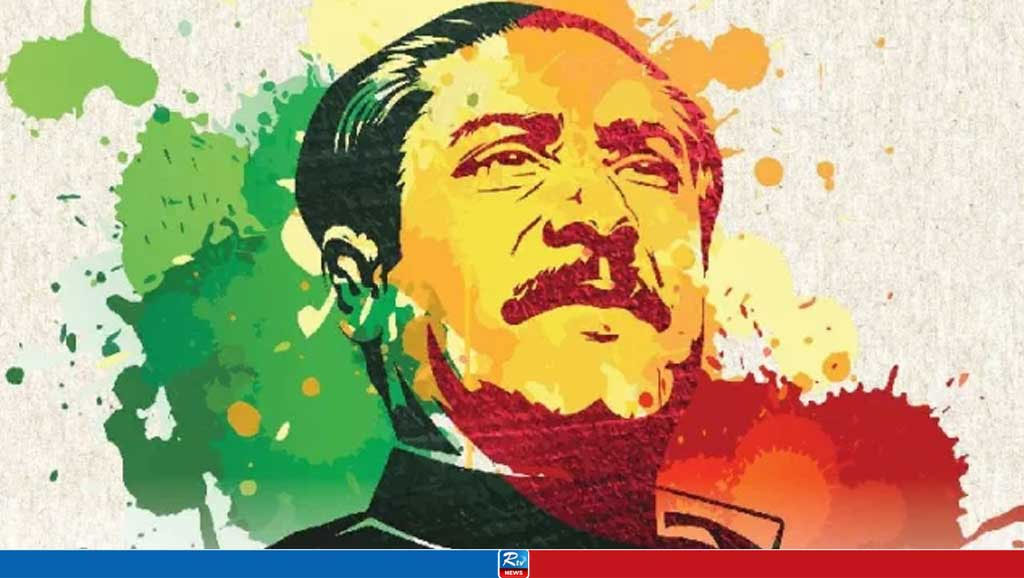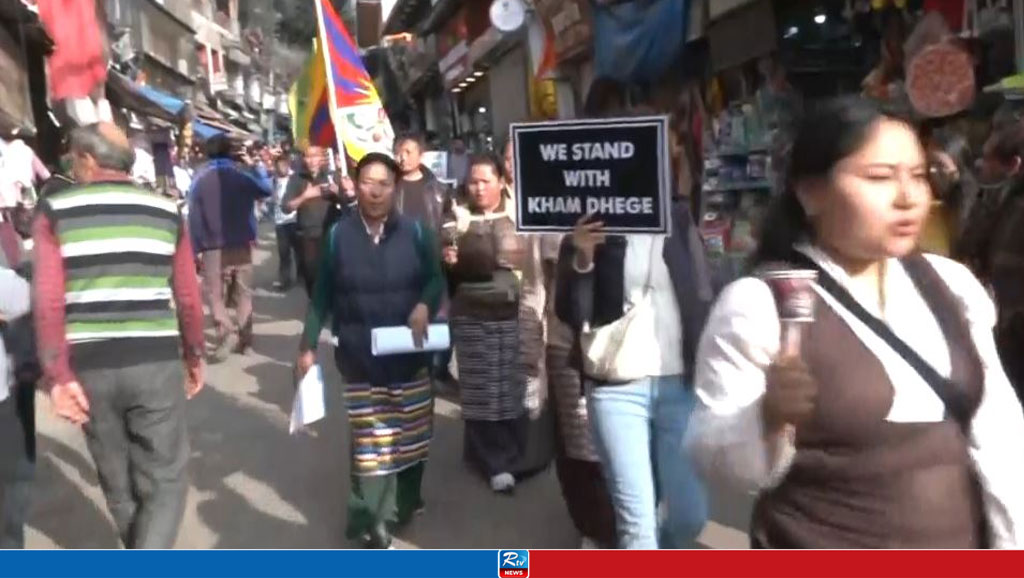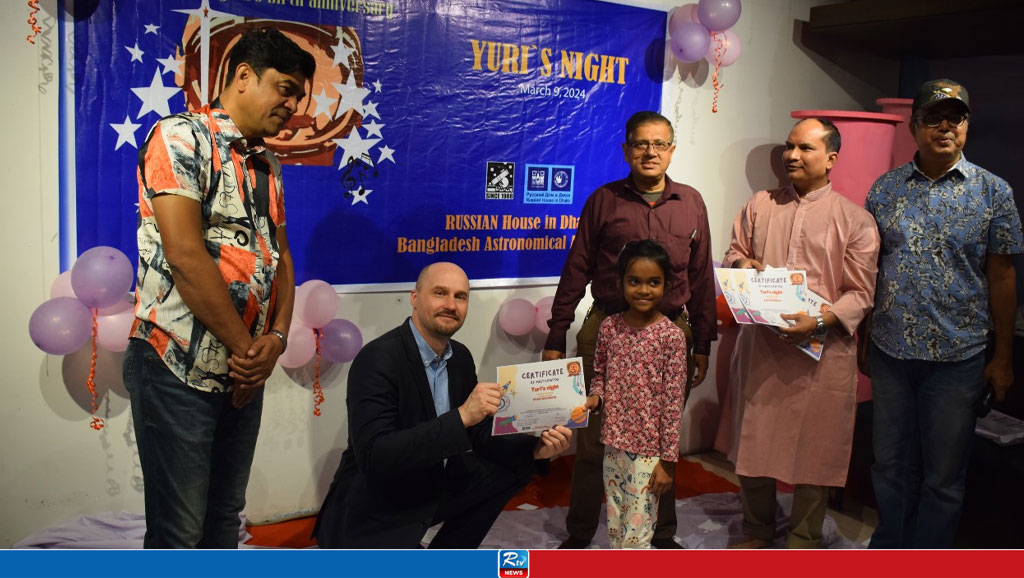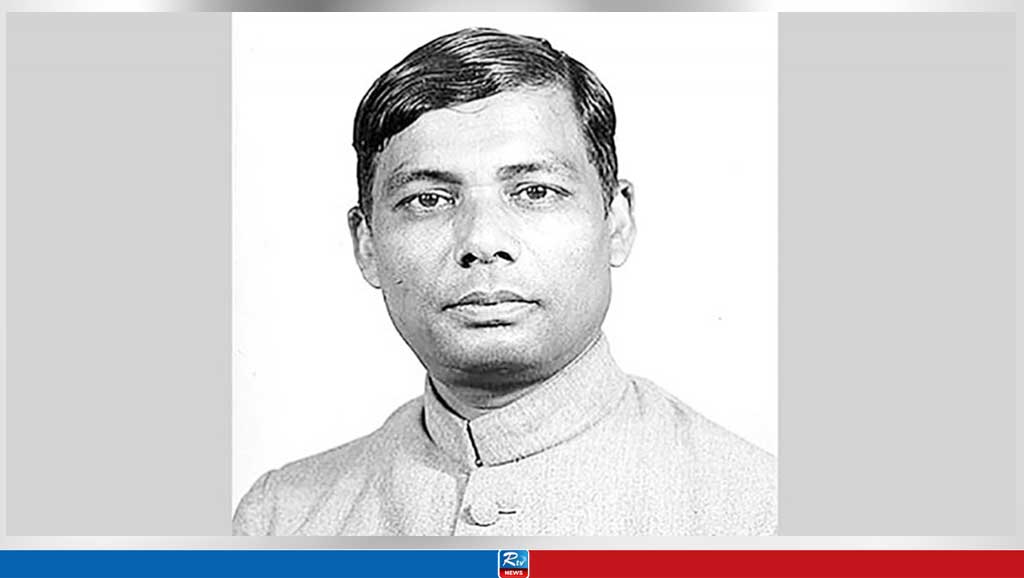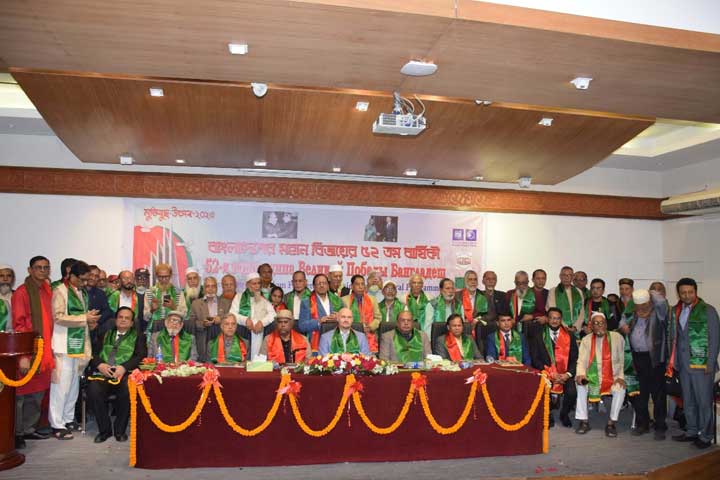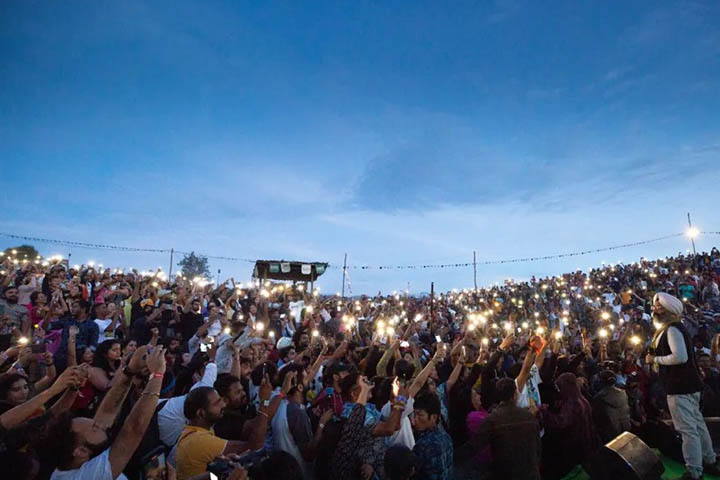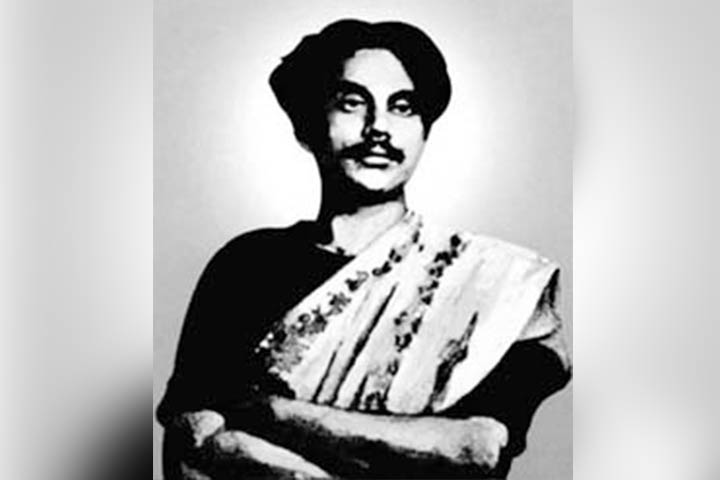Bangabandhu's birth anniversary celebrated
The nation today celebrated the 104th birth anniversary of Father of the Nation Bangabandhu Sheikh Mujibur Rahman and the National Children's Day in a befitting manner.
On this day in 1920, Bangabandhu, the vivacious leader of the Bangalee nation, the architect of independent Bangladesh and the greatest Bangalee of all times, was born in a respected Muslim family at Tungipara village of Gopalganj sub-division, now district.
He was the third among four daughters and two sons of his parents - Sheikh Lutfur Rahman and Saira Khatun.
Different political, social and cultural organisations and government bodies arranged different programmes, marking the birth anniversary and the Nation Children's Day.
The programme included placing wreaths at Bangabandhu's portrait at Dhanmondi-32 in Dhaka and his mazar in Tungipara, Gopalganj, doa and milad mahfil, munajat, prayers, discussions, cultural functions, voluntary blood donations, exhibition of documentaries, drawing competitions and distribution of foods among destitute and so on.
The ruling Awami League's programme began with hoisting of national and party flags atop all party offices, including central office at Bangabandhu Avenue here, this morning.
President Mohammed Shahabuddin and Prime Minister Sheikh Hasina paid rich tributes to Father of the Nation Bangabandhu Sheikh Mujibur Rahman on his birth anniversary and the National Children's Day.
The president and the premier paid homage by placing wreaths at the mazar (mausoleum) of Bangabandhu at Tungipara in Gopalganj at about 10.38 am.
President Shahabuddin first laid a wreath at Bangabandhu's mazar followed by Prime Minister Sheikh Hasina.
After placing the wreaths, they stood in solemn silence for some time as a mark of profound respect to the memory of the Father of the Nation.
A smartly turned out contingent drawn from Bangladesh Army, Navy and Air Forces gave an honour guard on the occasion.
Flanked by senior leaders of the ruling Awami League (AL), Sheikh Hasina, also the president of AL, placed another wreath at the grave of Bangabandhu on behalf of her party.
Father of the Nation Bangabandhu Sheikh Mujibur Rahman's younger daughter and PM's younger sister Sheikh Rehana and other family members were present.
Mohammed Shahabuddin and Sheikh Hasina also offered Fateha and joined a munajat seeking eternal peace of the departed souls of Bangabandhu as well as other martyrs of the August 15 carnage.
Cabinet members, PM's advisers, parliament members and AL senior leaders were present.
The president and the prime minister signed the visitor's book kept on the mausoleum premises as well.
Earlier in the morning, Prime Minister Sheikh Hasina paid rich tributes to Father of the Nation Bangabandhu Sheikh Mujibur Rahman by placing a wreath at the portrait of Bangabandhu in front of Bangabandhu Memorial Museum at Dhanmondi Road-32 in Dhaka.
After placing the wreath, she stood in solemn silence for some time as a mark of profound respect to the memory of the country's founding father.
Prime Minister's younger sister Sheikh Rehana was present at that time.
A smartly turned out contingent drawn from Bangladesh Army, Navy and Air Force gave an honour guard.
A munajat was also offered there seeking eternal peace of the departed souls of the martyrs of the August 15 carnage.
Later, flanked by senior AL leaders, Sheikh Hasina placed a wreath at the portrait of Bangabandhu on behalf of her party.
AL general secretary Obaidul Quader, its presidium members Dr Abdur Razzaque, Shajahan Khan, Jahangir Kabir Nanak, Advocate Quamrul Islam, Dr Mustafa Jalal Mohiuddin and AHM Khairuzzaman Liton, joint general secretaries Dr Hasan Mahmud, Mahbubul Alam Hanif and AFM Bahauddin Nasim, and organising secretaries Ahmed Hossain, BM Mozammel Haque, Mirza Azam, SM Kamal Hossain and Sujit Roy Nandi were, among others, present.
Later, Chief Justice Obaidul Hassan paid tributes to Bangabandhu by placing a wreath at his portrait.
Afterwards, AL's Dhaka city north and south units, Awami Jubo League, Awami Swechchhasebak League, Bangladesh Krishak League, Mahila Awami League, Jubo Mahila League, Chhatra League, Sramik League, Bangabandhu Sangskritik Jote, Bangabandhu Parishad, different political, social and cultural organisations and professional bodies placed wreaths at Bangabandhu's portrait.
President Mohammed Shahabuddin today hosted a special doa and milad mahfil at Durbar Hall of Bangabhaban after Zohr prayers, marking the 104th birth anniversary of Bangabandhu.
Marking the birth anniversary, the Islamic Foundation organised programmes at Baitul Mukarram National Mosque in the capital. The programmes included discussion and recitation from the Holy Quran and special prayers.
Munajat were offered seeking eternal peace of the departed souls of Bangabandhu and other martyred family members.
Special doa and munajat were also arranged at different mosques across the country after Zohr prayers.
Besides, special prayers were offered at all religious institutions, including temples, churches and pagodas on the occasion.
Christian community members arranged special prayers at Tejgaon Church and Mirpur Baptist Church (3/7-A Senpara Parbata, Mirpur-10), while Buddhist community members held prayers at International Buddhist Monastery at Merul Badda and Hindu community members at Dhakeshwari National Temple.
The day was a public holiday.
Bangladesh Betar, Bangladesh Television and other private TV channels and radio stations aired special programmes highlighting the significance of the day in the life of Bangalees while national dailies published special supplements.
Bangladesh missions abroad also celebrated Bangabandhu's birth anniversary and the National Children's Day by holding different programmes.
Source: BSS
17 Mar 2024,20:23












 Live Tv
Live Tv

